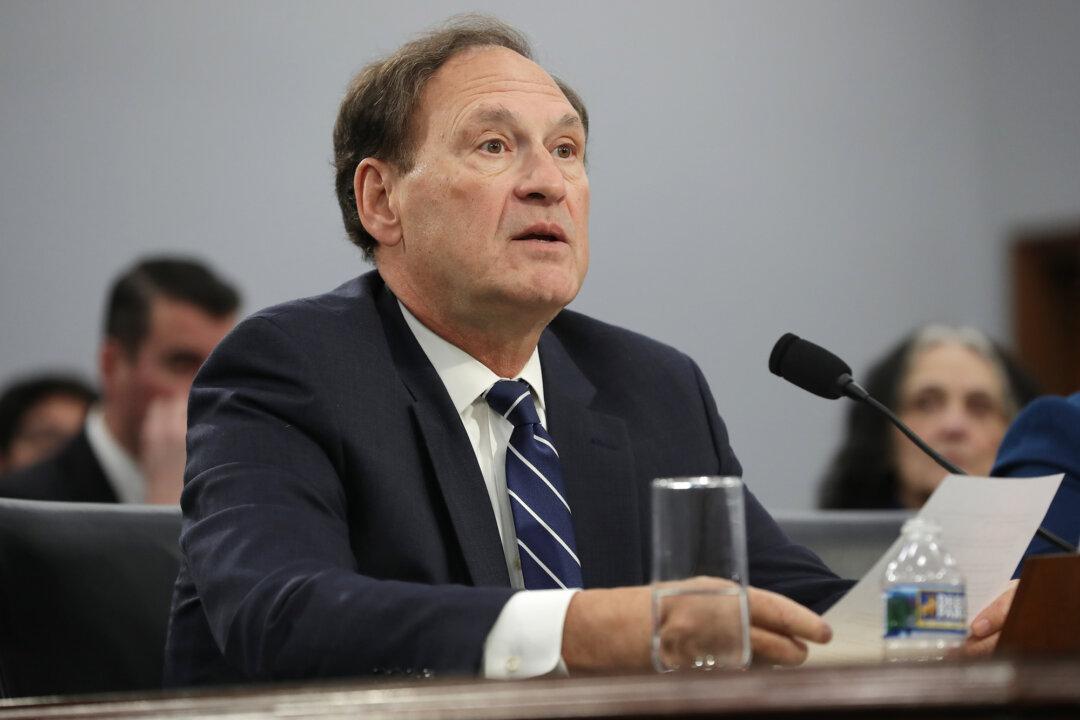WASHINGTON—In the opening oral argument of the Supreme Court’s new term, the lawyer for a Kansas man convicted of murdering members of his family told the court her client was unfairly convicted because he has a constitutional right to enter an insanity defense, which was denied to him because the Sunflower State abolished that criminal plea years before.
Insanity is a legal concept, not a medical one. One reference work defines insanity, as opposed to low intelligence or mental deficiency related to age or injury, as “mental illness of such a severe nature that a person cannot distinguish fantasy from reality, cannot conduct her/his affairs due to psychosis, or is subject to uncontrollable impulsive behavior.”





